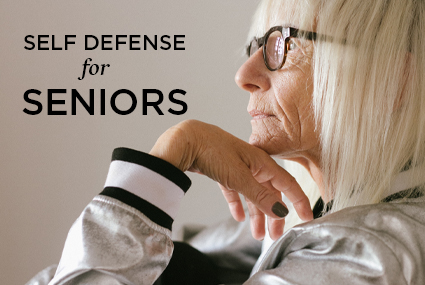Self-Defence For Seniors – High End Retirement Homes
As we age, it’s important to challenge ourselves in new ways. This includes learning new skills and hobbies for fun and also working to maintain or improve physical fitness. Balance and coordination are especially important for seniors to work on, as they are key to the prevention of injuries and can ensure seniors stay safe in general. As seniors continue to work on physical fitness, it’s also a great opportunity to learn more about how to keep themselves safe when they’re out on their own.
An Opportunity to Learn Something New
Learning new skills is one of the best ways for seniors to ensure they stay sharp. It’s even better when you can learn a skill that is practical, such as self-defense. What’s unique about self-defense is that it presents both mental and physical challenges, which makes it especially good for the aging population. Not only is it practical, but it keeps the brain healthy too. Of course, it also has the enormous benefit of keeping seniors safe and can allow them to feel more confident when they’re out and about.
When you present the idea of learning self-defense skills to your loved one, it’s best to look at it from the perspective of an opportunity to learn a new skill. It’s not something that should come from a place of fear—it’s a way to build confidence and feel stronger. The goal is for seniors to feel like they have the freedom to explore the world around them without fear of being victimized. Let’s take a look at some of the essential habits seniors can learn from self-defense training.
Be able to spot potential danger
Self-defense isn’t just about physical techniques. It’s also very much about sharpening the senses, which is extremely important since many seniors naturally experience a decline in a few of their senses, like hearing, vision, and perception.
Self-defense teaches seniors to pay more attention to what’s going on around them. Getting into the habit of scanning their surroundings regularly is the key to safety. They will learn to look, listen, and watch: when seniors practice this regularly, they’ll take notice of any potential dangers around them at all times. If anyone seems to watch too closely, follow behind, or tries to sneak up on them, they will be able to take steps to avoid the situation before anything happens.
Walk with confidence
Seniors who have trouble getting around may not feel confident when they walk on their own. This is something that is easily recognized by those who look to take advantage of seniors. Hunched posture and a lowered head can make seniors look timid and scared, and the simple act of working on posture can go a long way when it comes to keeping seniors safe.
Self-defense training allows seniors to improve posture, by standing and walking with their head up and shoulders back. Improved posture may also improve balance, which can make walking easier for seniors and prepare them to be able to fight back if needed.
Know how to avoid confrontation
When you know what to look for, you’re much less likely to find yourself in a scary situation. However, it’s possible that they may find themselves in a potentially dangerous situation where someone does approach them. Learning how to avoid confrontation is a key element of self-defense training for seniors.
For seniors, this means not being distracted by a potential attacker—keep your eyes up and don’t look away. De-escalation techniques are also important: speak confidently and loudly; this is often enough of a deterrent to would-be attackers. In the event that they demand your wallet or purse, give it to them. Throw it away from your body and run away when they turn to retrieve it.
Know how to fight back
The main goal of learning self-defense for seniors is to develop skills that will prevent confrontation in the first place. However, there may be times when seniors encounter situations where they may need to defend themselves against attackers. Simple techniques can work to distract or stop attackers for long enough to get away—the key is to hit vulnerable points on the body such as feet and eyes. The best way to learn these techniques is definitely in person with an expert who regularly works with seniors. If you or your loved one is interested in learning self-defense, search for special classes designed specifically for seniors to learn these key moves.

Comments